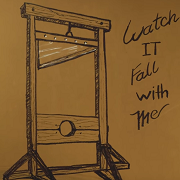|
stone cold posted:.....did I stutter, or did you just repeat what I said? https://en.wikipedia.org/wiki/Capital_punishment_in_the_United_States quote:In a 5–4 decision, the Supreme Court struck down the impositions of the death penalty in each of the consolidated cases as unconstitutional in violation of the Eighth and Fourteenth Amendments of the United States Constitution. The Supreme Court has never ruled the death penalty to be per se unconstitutional. The five justices in the majority did not produce a common opinion or rationale for their decision, however, and agreed only on a short statement announcing the result. Hmm. edit: I guess to be clear... the death penalty is being applied consistent with the 8th ammendment. Therefore, what the gently caress is your point in bringing up the 8th ammendment?
|
|
|
|

|
| # ? May 9, 2024 22:25 |
|
wateroverfire posted:https://en.wikipedia.org/wiki/Capital_punishment_in_the_United_States Thanks for the Wikipedia link my dog, now do yourself a favor and look up Furman v. Georgia, which I've brought up three times now. What's it like being totally intellectually incurious?
|
|
|
|
stone cold posted:Thanks for the Wikipedia link my dog, now do yourself a favor and look up Furman v. Georgia, which I've brought up three times now. I've looked up Furman v. George but again, what is your point other than being outraged and tedious?
|
|
|
|
wateroverfire posted:I've looked up Furman v. George but again, what is your point other than being outraged and tedious? Oh gee I dunno maybe because it was a SCOTUS case that deemed the death penalty unconstitutional on both eighth and fourteenth amendment grounds. Nope, that's clearly irrelevant. You're not the one, with your lack of basic reading comprehension, who is being tedious. Also, jfc, given that the penal system was built to keep slavery alive and is incredibly loving gross and broken you should be outraged.
|
|
|
|
hakimashou posted:I think most people believe that a justice system should have some mix of both utilitarian and moral considerations, even if they can't describe exactly what a perfect mix would be. I know I do. Actually, the only problem I see with your proposed fake-torture island is the fact that information about it being fake would inevitably be leaked somehow. If there were some way to 100% avoid the information being leaked, I don't really care how good the quality of life for such criminals is, as long as they're kept separate from the rest of the population so they can't re-offend.
|
|
|
|
stone cold posted:Oh gee I dunno maybe because it was a SCOTUS case that deemed the death penalty unconstitutional on both eighth and fourteenth amendment grounds. No it didn't. The court found that the current practice of the death penalty violated the 8th because it was too arbitrary. Which is why, when Georgia and several other states came up with policies for the death penalty that didn't violate the 8th, SCOTUS approved them 4 years later.
|
|
|
|
Patrick Spens posted:No it didn't. The court found that the current practice of the death penalty violated the 8th because it was too arbitrary. Which is why, when Georgia and several other states came up with policies for the death penalty that didn't violate the 8th, SCOTUS approved them 4 years later. not quite quote:MR. JUSTICE DOUGLAS, concurring. the arbitrary nature comes up here in Brennan's opinion: quote:MR. JUSTICE BRENNAN, concurring. also, to a lesser extent, here: quote:MR. JUSTICE STEWART, concurring. justice white was very interested in keeping the scope narrow and did not want to comment on the death penalty as a whole, here: quote:MR. JUSTICE WHITE, concurring. the sixth amendment also comes up briefly here in justice marshall's opinion: quote:MR. JUSTICE MARSHALL, concurring. so it's considerably more nuanced than what you're laying down, given that it was five concurring opinions and the eighth, fourteenth and sixth came up e: also, in gregg v georgia, north carolina and louisiana were found (that's woodson and roberts respectively) to have capital sentencing schemes that did not meet the proper legal criteria the court had established, so again, nuance stone cold fucked around with this message at 22:41 on Mar 6, 2017 |
|
|
|
stone cold posted:so again, nuance Well now that we are paying attention to nuance, can we agree that this: Stone cold posted:Oh gee I dunno maybe because it was a SCOTUS case that deemed the death penalty unconstitutional on both eighth and fourteenth amendment grounds. Isn't correct, and there is a difference between SCOTUS declaring the death penalty unconstitutional, and declaring how the death penalty is currently imposed unconstitutional?
|
|
|
|
Patrick Spens posted:Well now that we are paying attention to nuance, can we agree that this: Except if you read the opinions that's what it broadly did. It was struck down on eighth and fourteenth amendment and to a lesser extent sixth amendment grounds. Patrick Spens posted:No it didn't. The court found that the current practice of the death penalty violated the 8th because it was too arbitrary. Which is why, when Georgia and several other states came up with policies for the death penalty that didn't violate the 8th, SCOTUS approved them 4 years later. What it didn't do was a. only this and b. North Carolina and Louisiana were still not in compliance. Did you read the opinions? As for whether or not the death penalty in its current form is constitutional or not, I'd refer you to the most recent cases, Glossip v. Gloss which determined that midalozam does not constitute cruel and unusual punishment (by the way if Scalia had been dead for that ruling, the lower courts ruling denying the injunction would have still been upheld but this precedent wouldn't have been set) and Hurst v. Florida which determined that Florida's capital sentencing scheme violated sixth amendment rights given that Florida attempted to overturn the precedent that juries had to find the aggravating factors necessary to apply the death penalty by having juries make "recommendations" to the judge. It will be interesting to see given the current composition of the court whether or not the death penalty is still upheld as constitutional, particularly when you look at the Glossip v Gross dissents Sotomayor (joined by Breyer, Kagan and Ginsburg): quote:I begin with the second of the Court’s two holdings: that the District Court properly found that petitioners did not demonstrate a likelihood of showing that Oklahoma’s execution protocol poses an unconstitutional risk of pain. In reaching this conclusion, the Court sweeps aside sub stantial evidence showing that, while midazolam may be able to induce unconsciousness, it cannot be utilized to maintain unconsciousness in the face of agonizing stimuli. Instead, like the District Court, the Court finds comfort in Dr. Evans’ wholly unsupported claims that 500 milligrams of midazolam will “paralyz[e] the brain.” In so holding, the Court disregards an objectively intolerable risk of severe pain. And Breyer's opinion (Joined by Ginsburg): quote:In 1976, the Court thought that the constitutional in firmities in the death penalty could be healed; the Court in effect delegated significant responsibility to the States to develop procedures that would protect against those con stitutional problems. Almost 40 years of studies, surveys, and experience strongly indicate, however, that this effort has failed. Today’s administration of the death penalty involves three fundamental constitutional defects: (1) serious unreliability, (2) arbitrariness in application, and (3) unconscionably long delays that undermine the death penalty’s penological purpose. Perhaps as a result, (4) most places within the United States have abandoned its use.
|
|
|
|
It's possible to be both in favor of democracy, and have one's own opinions, you know. Logically, if a majority support something, that should be what happens, politically. Now if a majority thinks capital punishment for blasphemy is good or whatever, my job is to convince them otherwise. All of which is irrelevant to what I brought up, which was the suggestion that dismissal of capital punishment out-of-hand was not viable. Clearly it's still attractive to people even in countries that haven't done it for decades, the task is to explain why. stone cold posted:I notice you have no data on the other one hundred plus countries for public opinion on the death penalty, Also, the inverse of a tyranny of the majority is the tyranny of a minority. You have to grant power at some point, and that power has the potential to be abused. Your safest bet is always to give it to everyone you can, without discrimination. Anything less is just special pleading/elitism. But all of that is rather obtuse, so bringing it back on topic: I actually feel having doubts about the ability of the state to adjudicate fairly would count as legitimate grounds for opposing the death penalty. Even if you're pro-gun, not many support giving a gun to a crazy guy. Similarly, if you don't think the death penalty will be used correctly, by a given state, then that's grounds to advocate that state should abolish it. But that's a contextual issue. So if that's your reason, then that's fine, I can't hold that against you. My take was that I just don't buy arguments that nobody deserves to die - it doesn't take a lot of effort to find people throughout history that do reasonably satisfy that criteria (start with war criminals). So, would a perfect justice system have the death penalty for some crimes? I say yes.
|
|
|
|
rudatron posted:I'm not your errand boy, find it yourself if you're so inclined. If you're gonna make a claim like: rudatron posted:No, but not every country that has abolished it actually has the majority of the population favoring that abolition. You should be able to back it up with evidentiary support, beyond citation of one UK opinion poll. Gimme the data, that's all.
|
|
|
|
Ytlaya posted:Actually, the only problem I see with your proposed fake-torture island is the fact that information about it being fake would inevitably be leaked somehow. If there were some way to 100% avoid the information being leaked, I don't really care how good the quality of life for such criminals is, as long as they're kept separate from the rest of the population so they can't re-offend. Yeah it's an if-then thing. Nothing wrong with being a strict utilitarian, many people are.
|
|
|
|
I like to see people die, I don't care what they did/didn't do. 9/11 kept me going for DAYS.
|
|
|
|
stone cold posted:If you're gonna make a claim like: It's obviously false, too, because when you look at France, according to opinion polls, almost two thirds of the population was unfavorable to abolition in 1981, when it was abolished. (Of course the poll was published in a right-wing newspaper, and I know nothing about its validity, but still). Interestingly, maybe, support for the death penalty has been rising back up for the last decade or so.
|
|
|
|
hakimashou posted:It's bad to have a society that punishes innocent people in any way for the crimes of others. My previous posts many pages back, were the unfortunate victims of sleep deprivation from 24/7 construction next-door and having a cold. I read them back and I sounded like a frickin' moron. My absolute apologies (and deepest embarrassment) --"Bad people are obviously bad etc"  Has anyone really made any point about the people that would rather go to an easy death (which we are apparently incapable of doing with morphine which is just hilariously stupid) than spend life in jail? Personally, I would rather be killed (the RIGHT way, with morphine) than spend more than...6 months in jail. Is that a human right? *edit* I meant to say that this post basically outlines my fundamentals in the quickest way possible DoggPickle fucked around with this message at 06:36 on Mar 8, 2017 |
|
|
|
There's one line of thought that says life imprisonment is disproportionately cruel for murder. The murderer didnt imprison the victim for decades, he just killed him, so it would be unjust to imprison him for such a long period instead of imposing the death penalty.
|
|
|
|
hakimashou posted:There's one line of thought that says life imprisonment is disproportionately cruel for murder. The murderer didnt imprison the victim for decades, he just killed him, so it would be unjust to imprison him for such a long period instead of imposing the death penalty. Eh... I kind of think that if you ask most people if they'd rather live, they'd rather live. At least if you're serving life there's the possibility your sentence can be commuted, or that the law might change, or etc.
|
|
|
|
It's cruel if the jail is some hellish cesspit. But if we were able to reform our prisons into detention facilities filled with opportunities to educate yourself, contribute to society, etc. it actually wouldn't be all bad! I understand that this is unlikely.
|
|
|
|
N. Senada posted:It's cruel if the jail is some hellish cesspit. It's still basically slavery, particularly if it is for life. Kant thought that if there were two condemned men and one accepted his death while the other plead for life imprisonment, the former was an honorable man and the latter wretched, since he was willing to accept a life of enslavement.
|
|
|
|
hakimashou posted:It's still basically slavery, particularly if it is for life. Kant was probably never faced with the choice between life in prison and execution, though. Pure reason can lead you to some strange destinations.
|
|
|
|
wateroverfire posted:Kant was probably never faced with the choice between life in prison and execution, though. Kant makes more sense once you learn he didnt jerk off.
|
|
|
|
N. Senada posted:It's cruel if the jail is some hellish cesspit. It is unlikely. I am a girl and WHITE, and went to jail in an affluent county for only 5 days, and the slave mentality that you are required to adopt within the first few hours is palpable and mentally damaging. I had a female guard tell me within the first day when I had to change jail clothes for some reason, that I should throw my first prison-wear into the "bin", and there were two bins next to each other, too high for me to see in, and one was round and looked recycley and one was rectangular and looked more like a trash area, but I didn't want to make the crazy lady angry by doing it wrong, and I said "which bin?" and she started screaming at me and degrading me that I was stupid and I didn't know what a "bin" was. She stomped over and grabbed my clothes and threw them in like I was a nitwit. It's obviously the round one. Like  leave your dignity at the door! Let the dumbest people that couldn't get a real job take out their anger on you with no repercussions and just hang your head in shame and TAKE IT DAMMIT. leave your dignity at the door! Let the dumbest people that couldn't get a real job take out their anger on you with no repercussions and just hang your head in shame and TAKE IT DAMMIT.That is the kind of poo poo they do to you immediately so that you know your place as idiot cattle that can't do anything correctly. On the second day, I was very close to getting beat up because I was on the "white" side of the Oz-looking area, and there were two TV's and I was sitting there reading a book, keeping my head down, and this chick asked if I CARED if she changed the channel. I barely looked up and said that I was reading and I didn't care (It was like soap operas or something). So she changed the channel and a bunch of other people got mad at me like I had given her permission. Some skanky meth bitches got up in my face until I talked them down in a fit of emergency charmingness. On the third day, the drug addict in the cell next to me was taken out during the night because she had a severe nose bleed and HOLY poo poo there was so much blood. And then they made me clean it up with a mop. No gloves. I did a pretty lovely job, but I had the out of only being there for a few days so I could afford to irritate the guards a little bit. They also took everyone's' blood to check for some disease that prisoners always get and I told them that I have weird low blood pressure and I tend to pass out when I get stuck with needles, and they still made me do it standing up and I got light-headed and semi-collapsed. If prisons dumped all the non-violent offenders and actually made them places to educate yourself and still treated people with human dignity, they would serve a purpose, but locking people up for insanely long sentences, like 5 years for a drug crime or 10 years for an accidental (but maybe with some fault) vehicular manslaughter is not going to make them better people or teach them a lesson. It just makes them horrible people who have to adopt this slave-mentality in order to live, and make friends with worse criminals and would do absolutely anything not to be berated or beat up or treated like poo poo. There is literally no point to it, other than keeping severely violent and messed-up people from hurting anyone else. I for one would ABSOLUTELY rather be dead than do that again, and I think you're overestimating people's will to live, If LIFE is a constant torment, or endless slavery. You don't need the humiliation and degradation to get a result. Just plain not being able to do things that you want, see your family or snuggle your pets, or to escape to another place and lay in the grass or see the sun, dumb stuff like that is really HARD. You don't have to add the cruelty and pissing and showering in front of others to make it worse. It really is kill-or-be-killed in there, and I only saw the softest POSSIBLE side. American prisons are cesspools of desperation and hate and racism and absolutely terrible day-to-day life. It's not just in the movies, folks. You're forced to adopt this alternate persona of forced strength with the other inmates and yet abject obedience to the masters. It's loving WEIRD and barbaric. We as a people need to decide what going to jail should actually mean. If you want to throw people in literal dungeons, to sit in their own filth and fight off the rats, but you did it for a WAY shorter time, I would actually be down for that. But this crazy, unending servitude torture is just useless bullshit that costs tons of money and makes real thieves out of people that stole ONE THING and got caught, makes wife beaters out of guys that got into a bar-fight, makes killers out of angry drunks, makes rapists out of confused anti-social dudes, and makes people unable to get a job for the rest of their lives with Felon on their record. That was quite a long rant, and I'm sorry, and it would be better served in a general "U.S. prison is stupid" thread, but I feel like it does apply when you're talking about the death penalty, because I think a lot more people would choose death if we could manage to do it properly..i.e. go to sleep and never wake up. What is WITH the over-complicated, idiotic drug cocktail anyways? Is it pharmaceutical influence? WTF is wrong with an overdose of opiates? It makes me cringe every time I see what they actually use.
|
|
|
|
It seems difficult to me to get from "people deserve to be punished or rewarded based on whether what they do is right or wrong" to "no one deserves to die". If the justification is "they should be kept alive to suffer and think about what they did wrong, not killed" then the implication seems to be that death is too lenient. If there are punishments more severe and less severe than death, why should there be a gap in the punishment spectrum where 'death' sits?
|
|
|
|
hakimashou posted:It seems difficult to me to get from "people deserve to be punished or rewarded based on whether what they do is right or wrong" to "no one deserves to die". Nah, the logic is pretty straight-forward. Would you agree that no one deserves to be repeatedly raped and tortured for 20 years straight (or insert whatever disgusting inhumane thing you can think of)? Basically the logic is that there exists a limit that punishments shouldn't cross, and that the death penalty is beyond that limit. You can disagree about where the limit should be, but most people would agree that limit exists so the logic itself is fine.
|
|
|
|
Ytlaya posted:Nah, the logic is pretty straight-forward. Would you agree that no one deserves to be repeatedly raped and tortured for 20 years straight (or insert whatever disgusting inhumane thing you can think of)? It might be possible for someone to do something so wrong that it is justifiable, I don't know. Anyway, compared to that, the death penalty would be a mercy. Why does no one deserve to die?
|
|
|
|
Is death more lenient than 60 years in a bare cell with no light and nothing to read? Is death more lenient than a bright white cell with sound dampened walls and your guards never open their mouths for 60 years? Is it torture to scamper from your tiny cell to the mess hall and back again every day for 60 years so that one creepy guard doesn't mess with you? Then you can have your 8 straight hours of a baloney sandwich and reading the same 100 books in the entire library over and over and over again. How do we not have mass suicides every day in American Jail? My inclination is that your average prisoner is a pussy. NO, and YES, and it's obvious, because these are all tortures of one kind or another, and a quick death is not a torture. WE have to decide as a society what we actually want to ACCOMPLISH by jail sentences and other impositions like wealth-forfeiture and death. Do you WANT people to learn from their mistakes and get better? Or do you just want to send them into a hellhole where they forget who they are, lose all their job opportunities, relationships, savings, houses, and then send them back into the world like you've done something GOOD? 1. Stole money or some items.. Do some really lovely time, but short, like a matter of months depending on your crime 2. Assault, you hurt someone, you're a bastard, do many more months, but not years, try to teach them some life skills or a job or something if they need it. But realize that they are losing work income. possibly their HOME and their ability to get a decent job afterwards... That's a lot of stuff to toss at a dude while he's naked and literally fighting off random people and trying to manage his finances over the phone with his girlfriend. Jail is SO ANTI-USEFULL in every way! 3. Murder.. Well, screw this dude. If there is convincing, indisputable non-racist evidence, AND a confession, just kill them immediately. I really don't see how life in slavery-prison is a better deal. OH wait, the dudes on death row actually get BETTER general treatment than ordinary inmates. Why do you think they sit there appealing and whining for so long? There are at least 1 or 2 appeals that happen automatically without the inmate even agreeing to them. What kind of boring, horrible person would choose to sit in a single isolation cell for years instead of just dying? Sorry but I tend to think of those people with completely broken imaginations and awful selfish people in general.
|
|
|
|
DoggPickle posted:It is unlikely. I am a girl and WHITE, and went to jail in an affluent county for only 5 days, and the slave mentality that you are required to adopt within the first few hours is palpable and mentally damaging. I had a female guard tell me within the first day when I had to change jail clothes for some reason, that I should throw my first prison-wear into the "bin", and there were two bins next to each other, too high for me to see in, and one was round and looked recycley and one was rectangular and looked more like a trash area, but I didn't want to make the crazy lady angry by doing it wrong, and I said "which bin?" and she started screaming at me and degrading me that I was stupid and I didn't know what a "bin" was. She stomped over and grabbed my clothes and threw them in like I was a nitwit. It's obviously the round one. Like The fact that your life is privileged enough that 5 days in minimum security scarred you doesn't mean that the death penalty is good. 
|
|
|
|
Peachfart posted:The fact that your life is privileged enough that 5 days in minimum security scarred you doesn't mean that the death penalty is good. I'm not sure she said it was "good," just better than permanent dehumanizing slavery in prison.
|
|
|
|
hakimashou posted:I'm not sure she said it was "good," just better than permanent dehumanizing slavery in prison. Lots of things can happen during a life sentence. Your sentence could be commuted. You could get pardoned. The law could change. You could find meaning participating in the prison community and come to value your time whether you're released or not. You could find the love of your prison life. Prison conditions could improve. If you're dead, though, that's it.
|
|
|
|
DoggPickle posted:3. Murder.. Well, screw this dude. If there is convincing, indisputable non-racist evidence, AND a confession, just kill them immediately. Confessions aren't as rock solid as you might think. When you have free second to he horrified by the conduct of the police, google "Reid Technique." (the kid in making a murderer is a classic case of Reid technique in action.)
|
|
|
|
wateroverfire posted:Lots of things can happen during a life sentence. Lot's of things can happen during a life sentence. You could be subject to the daily torture that is the US prison system. If you're dead, though, that's it. What I'm saying is anyone who has ever served on a US jury and known even the slightest bit about what US prison is actually like but returned a guilty verdict anyway is immoral. I don't care what the crime was or how guilty the defendant was.
|
|
|
|
Orange Devil posted:What I'm saying is anyone who has ever served on a US jury and known even the slightest bit about what US prison is actually like but returned a guilty verdict anyway is immoral. I don't care what the crime was or how guilty the defendant was. Well that's sure an opinion, I guess. In Chilean prison you have to hope your family buys toilet paper for you. No, I'm not making that up.
|
|
|
|
hakimashou posted:I'm not sure she said it was "good," just better than permanent dehumanizing slavery in prison. Thank you. I totally admitted that I saw only the very softest possible underbelly of the situation. Oh hell I'm "privileged" so that makes my experience not worthy somehow? On the contrary, it makes me understand how absolutely horrifying regular prison life can be. It served NO PURPOSE. Everyone in there was depressed and angry and horrible and mean, and there was nothing to do except read a random selection of crappy old books and clean everything all the time and eat your baloney sandwich at 5 AM. I was lucky that it was during a freaky super-cold streak and we were allowed to sit in our own cells during the day and use the blankets, instead of having to wander in the common area and interact with the mostly drug-addicts and the occasional nasty violent bitch. It makes people lose their income and their homes. Unless you're super-rich or you have family-members that are willing to take care of your stuff, how in the hell are you supposed to do even 6 months without losing literally everything you have ever worked for in your life? I was lucky enough to have a boyfriend at the time, who could come over every day and feed my dogs. Otherwise, they would have starved (or I'd have gotten someone else to do it..lol.. but imagine that for 6 months, a year, 5 years!) The death penalty is actually a very nice way out, compared to living in indentured servitude and bowing to Massa for the rest of your life. I think a lot more people would choose it, if it was properly done. I would bet real money that actual 1 time or 2 time killers that aren't sociopaths would confess in an instant if they had the choice. What we really need to talk about, is what are we trying to ACCOMPLISH with jail time, or even with Death?
|
|
|
|
You were in jail, not prison. hth.
|
|
|
|
|
Submarine Sandpaper posted:You were in jail, not prison. hth. SO prison is worse? Or better? What exactly is your point? And is it basically proving mine?
|
|
|
|
Perhaps rather than making absurd statements like "The death penalty is actually a very nice out." Fueled by your depression and lack of knowledge of the criminal justice system in this country, you should realize that your experience is just an anecdote and while you may not have gotten anything out of it other than contempt, others do experience true reformation. Those who want death as an out just off themselves, with a majority of suicides occur within two weeks of incarceration (this is ignoring the abuse of mentally ill and PoC being written off as suicide). It's a shame you were not such a rational actor so I wouldn't have to read your inhumane garbage. Prison has a much better QOL than Jail btw.
|
|
|
|
|
Prison becomes poison if you switch the 'r' to an 'o'. Think about it guys, that's why advocate for poisoning people instead of prisoning them. For minor offenses, you take some laxative. The bigger the offense, the more laxative you take. If you commit genocide you are sentenced to ABP (always be pooping)
|
|
|
|
hakimashou posted:It might be possible for someone to do something so wrong that it is justifiable, I don't know. I hope that you create a philosophy thread so that I can read and learn from it, as I have much to learn. Yet I still think your use of the word 'deserve' is ridiculous, as the decision of who 'deserves' what is completely subjective. The moral and ethical arguments of philosophers can stimulate our thought, yes, but the world is what we make it; if we can see that we have no human institution that can accurately dispense 'justice', than the sentence of death is too high to ever be allowed. What could possibly be the gain of ending a life*, when put beside preserving it? Cold reason and economics cannot even take us to that conclusion. *except in the case of preserving another life
|
|
|
|
BRJohnson posted:What could possibly be the gain of ending a life*, when put beside preserving it? Cold reason and economics cannot even take us to that conclusion. Of course they can. Whatever your utility function, removing the people you find to be making society worse makes it better. Why pretend like you can't understand the anti-humanist position on this? It's so simple. edit: Like, I can't wrap my head around how you can say this: quote:the decision of who 'deserves' what is completely subjective obviously indicating you believe in the subjectivity of moral values (i.e. moral anti-realism) but then purport to not understand how it's possible to think it's a good enough thing to permanently get rid of very bad people by killing them to outweigh the cost of the inevitable false-positives. I'm not even saying I agree with this, but I don't get why you'd pretend to not understand that this point of view exists. If you find it immoral, argue it's immoral, not that it doesn't make sense. Smudgie Buggler fucked around with this message at 04:10 on Mar 11, 2017 |
|
|
|

|
| # ? May 9, 2024 22:25 |
|
BRJohnson posted:I hope that you create a philosophy thread so that I can read and learn from it, as I have much to learn. Yet I still think your use of the word 'deserve' is ridiculous, as the decision of who 'deserves' what is completely subjective. The moral and ethical arguments of philosophers can stimulate our thought, yes, but the world is what we make it; if we can see that we have no human institution that can accurately dispense 'justice', than the sentence of death is too high to ever be allowed. What could possibly be the gain of ending a life*, when put beside preserving it? Cold reason and economics cannot even take us to that conclusion. Say that in the future we invent some perfect lie defector and mind reader, some form of advanced brain analyzer. John's wife Jane has a lot of money, and carries a large life insurance policy. Enough for John to be rich and set for life if he gets it all. He murders her and gets all the money, but the police soon figure out he did it, and he is apprehended. The police question him and turn on the brain analyzer. He admits to killing his wife, and explains he did it for the money. The police ask him if he would ever kill anyone else, and he tells them he would not. He has all the money he could ever want, and getting rich was his main ambition in life. The brain analyzer confirms he is telling the truth, and that there is almost no chance he would ever kill anyone again. Does he deserve to be punished, or should the police just let him go with his ill-gotten gains and subject him to periodic brain analysis in the future to make sure he hasn't changed his mind about murdering anyone else? - This doesn't really address whether in today's world we can justifiably administer the death penalty as a public policy, but it can help you explore moral intuitions about whether people really do deserve punishment or not. As for the first part, all I've tried to argue is that it's not wrong for a guilty murderer to get the death penalty, not that the US justice system, or any other, does a good job of imposing it or that it should remain on the books. One argument against the death penalty is "the death penalty is always wrong, it's is never not-wrong to execute a criminal." I disagree with this one specifically.
|
|
|





















